Green Mediterranean Diet: Benefits, How It Works, And Food List
Embrace good health without compromising on flavor with this wholesome diet.

Image: Shutterstock
The green Mediterranean diet is the “greener” version of the traditional Mediterranean diet, which is based on the eating habits of people living around the Mediterranean Sea. It focuses on a higher intake of rich, green goodness of plant-based foods, and has a more structured approach compared to the traditional Mediterranean diet. If you are a seasoned health enthusiast or simply curious about exploring a greener path for better health, then you have come to the right place as this article will walk you through the intricacies of the green Mediterranean diet and help you decide if it is the right fit for you. Keep reading!
 At A Glance: Green Mediterranean Diet
At A Glance: Green Mediterranean Diet- Principle: Centers around whole, plant-based foods, with very limited consumption of animal products.
- Purpose: Promote overall health and well-being, with a focus on heart health, and weight management.
- Who Is It For: Individuals looking to adopt a majorly plant-based diet.
- Duration: Long-term.
- Who Should Avoid: Individuals with eating disorders, nuts allergies, or medical conditions requiring strict dietary restrictions.
- Cons: Might be challenging to follow due to food availability and cost, and may lead to potential nutrient imbalance, cravings, and overeating.
In This Article
What Is The Green Mediterranean Diet?

The green Mediterranean diet is a healthier twist on the traditional Mediterranean diet. The latter involves the consumption of whole grains, nuts, and seeds, with limited consumption of fish, poultry, eggs, seafood, and very little red meat. However, the ‘green’ version of the diet focuses more on plant-based foods, reducing meat and animal product intake to a minimum and eliminating red meat. In other words, while you can still have poultry, fish, or eggs once in a while, the star players in the green Mediterranean diet are tofu, beans, nuts, and quinoa as your main protein sources. The following section elaborates on how this greener version of the traditional Mediterranean diet works. Scroll down.
Key Takeaways
- The green Mediterranean diet is a healthier variation of the traditional Mediterranean diet, emphasizing plant-based foods and nutrient-rich ingredients in addition to, walnuts, green tea, and Mankai.
- Benefits of this diet include improved heart health, weight management, reduced cancer risk, better gut health, brain health support, and reduced inflammation.
- Potential downsides include allergen risks, nutrient gaps for some individuals, potential cost considerations, and the need for strict adherence to calorie and macronutrient goals.
- The green Mediterranean diet can be adapted to various dietary preferences, making it a promising option for those seeking a balanced and nourishing approach to their meals.
How Does The Green Mediterranean Diet Work?
The green Mediterranean diet is based on the idea of limiting calories and carbs while increasing protein intake. It has a similar approach to calorie restrictions as the Mediterranean diet, which is 1,500-1800 calories per day for males and 1,200-1,400 calories for women, with an additional requirement of consuming 3 to 4 cups of green tea, 28g of walnuts, and 100g of Mankai shake, which is made with Mankai, an aquatic plant known for its high concentrations of protein, iron, vitamin B12, and flavonoids (1), (2), (3). Apart from meeting these dietary requirements, you also have to exercise for up to five days a week.
 Did You Know?
Did You Know?However, there’s the big question – how different is the green Mediterranean diet from the traditional one? Well, the answers are in the section below.
The Green Mediterranean Diet Vs. The Standard Mediterranean Diet
There are a few factors that set the two diets apart and these have been explained below.
The Mediterranean Diet
This diet is based on the traditional eating habits of Mediterranean civilizations. It encourages the consumption of whole grains, herbs, beans, spices, nuts, fruits, vegetables, and olive oil. Seafood is on the menu about twice a week, along with moderate amounts of dairy, and poultry. It allows red meat once in a while and even allows for the enjoyment of up to one glass of red wine per day, although it doesn’t encourage non-drinkers to start. However, it does not include highly processed foods such as processed meat (5). So, for a healthy start, you can go with a Mediterranean diet breakfast, emphasizing fresh, nutrient-dense foods, and then explore more Mediterranean diets for lunch and dinner.
The Green Mediterranean Diet
This diet takes things a step further, eliminating red and processed meat and spotlighting plant-based foods. You will still find the classic Mediterranean staples like whole grains and fresh produce. However, what sets it apart from the traditional Mediterranean diet is that it emphasizes the intake of three components – Mankai duckweed, green tea, and walnuts. These additions are not random; they are chosen for their higher content of polyphenols, which have antioxidant properties and can boost health (1), ( 6).
Since the diet amplifies on higher intake of plant-based antioxidants and proteins, it may benefit your health in many ways. Take a look at the section below.
Potential Benefits Of A Green Mediterranean Diet
- May Improve Heart Health

Studies show that plant-based diets may significantly lower the risk of heart disease, and the risk of cardiovascular events, like heart attacks and strokes. Consuming nuts and olive oil, abundant in omega-3 fatty acids, helps lower bad LDL cholesterol and increase good HDL cholesterol (7).
- May Help In Weight Management
This low-calorie diet promotes healthy weight management. Both the Mediterranean diet and the green Mediterranean diet restrict the daily calorie intake, which may help reduce weight when paired with regular physical activity (8). Moreover, the green Mediterranean diet emphasizes metabolism-boosting, antioxidant-rich food intake, which may help with sustainable weight management. Here, you can also explore the Mediterranean diet for weight loss to enrich your weight loss journey. - May Reduce The Risk Of Cancer
Both the Mediterranean diet and its greener version involve consuming foods rich in antioxidants, vitamins, minerals, and anti-inflammatory properties. Such foods may reduce cell degeneration and help prevent the spread of cancer cells. Moreover, these foods also prevent DNA damage and have a protective effect (9). - May Improve Gut Health
The diet’s fiber-rich components coming from the vegetables support the increase of a healthy gut microbiome, enhancing digestion (10). - May Aid In Brain Health
The diet’s polyphenol-rich foods may protect against brain atrophy associated with aging. It may potentially lower the risk of neurodegenerative diseases and contribute to improved mood and cognitive function (11). - May Reduce Inflammation
Abundant antioxidant compounds such as vitamins C and E in the vegan or vegetarian diet help reduce the levels of inflammatory biomarkers in the body. A higher level of such biomarkers indicates the risk of inflammatory conditions. Therefore, following a plant-based green Mediterranean diet may reduce chronic inflammation, linked to various inflammatory diseases such as cardiovascular disease (12). - May Lower The Risk Of Diabetes

Plant-based diets that limit the intake of refined foods and animal products may help stabilize blood sugar levels, improve insulin sensitivity, and support healthy glucose metabolism(13). Therefore, the green Mediterranean diet may be beneficial in preventing the risk of type 2 diabetes and help reduce associated symptoms.
The health advantages of following this diet are tempting, but is the green Mediterranean diet the right choice for you? Find out in the following section.
Is The Green Mediterranean Diet Plan A Healthy Choice For You?
The green Mediterranean diet certainly boasts a diverse range of nutrient-rich foods, covering all the essential food groups, which makes it a healthy choice for almost anyone. However, individuals who have eating disorders or nut allergies should avoid this diet, since it puts more emphasis on the consumption of nuts, especially walnuts. Additionally, it is essential to adopt a dietary pattern that aligns with your tastes, cultural traditions, and financial means. Moreover, it is recommended that you consult with a professional healthcare provider before making any changes to your diet.
If you have decided to try this diet then scroll down to see how you should follow it.
How To Follow The Green Mediterranean Diet
Here’s a guide on how to embrace this dietary approach:
- Bring More Greens On The Plate
Since the spotlight is more on greens, add more vegetables to your dishes. Consume more vegetable soup, add leafy greens to your salads, and munch on carrot sticks or celery sticks with a hummus dip during snack time. - Sneak In Some Fruits
Increase the consumption of fruits such as apples, melons, grapefruits, oranges, peaches, etc. Add them to your oatmeals and smoothies, or have them as your pre-workout snack. - Consume Mankai
This duckweed is one of the important requisites of this diet. Use Mankai powder or frozen cubes and add them to your shakes and smoothies, preferably in the morning. - Walnuts Are A Must
Swap other snacks for walnuts as these are another must-have food in this diet. You can even add them to your oatmeal for breakfast. - Green Tea Superiority
It is a staple and can be consumed 3-4 cups in a day. For tea, there’s no fixed time, have it when your heart wants a cuppa!
You may try making slow changes to your existing diet and take one step at a time before completely switching to the green Mediterranean diet. However, there are certain dos and don’ts you need to stick to regarding your food choices. The following section briefly elaborates on what to eat and avoid. Take a look.
Green Mediterranean Diet: Foods To Eat And Avoid

Foods To Eat
The green Mediterranean diet offers a variety of nutrient-rich choices from all food groups, promoting a health-conscious approach to eating. Here’s a concise breakdown of the foods you can enjoy while following this diet:
- Fruits And Vegetables
These form the foundation of the green Mediterranean diet. Opt for vegetables like spinach, onion, and cauliflower, and include fruits such as avocado, lemon, and grapefruit. - Grains
Whole grains take center stage over refined ones. Embrace options like whole oats, whole-wheat bread, barley, bulgur, and millet. - Protein
The emphasis here is on lean protein sources and plant-based options, reducing red meat consumption. Your protein choices can include beans, peas, nuts, seeds, and the intriguing addition of duckweed (Mankai). - Healthy Fats
Healthy fats play a vital role in this diet. You may consume walnuts, almonds, olive oil, and olives.
 Fun Fact
Fun Fact- Dairy
While Greek yogurt, cheese, and milk are not excluded from this diet, enjoying these in moderation is recommended.
Foods To Avoid
This diet has its fair share of restrictions to optimize your health. Here’s a list of foods that you should exclude when following this diet:
- Processed Fruits And Vegetables
Steer clear of sugary jams, jellies, dried fruits with added sugar, and frozen vegetable mixes drowning in sauces. - Refined Grains
Avoid refined grains such as white flour, white bread, grits, white rice, pasta, crackers, and sugary boxed cereals. - Red Meats And Processed Meats
Keep beef, lamb, pork, and processed meats like hot dogs, luncheon meats, and bacon at bay. - Processed Dairy
Highly processed dairy items, including fruit-flavored yogurt, ice cream, processed cheese, and pudding, should be avoided to maintain the integrity of the diet. - Saturated And Trans Fats
Say no to fried foods, butter, lard, margarine, and shortening, which don’t align with the principles of this eating plan.
In the section below, there is also a sample diet chart that can help with your meal preparation with the foods that are allowed in this diet.
Green Mediterranean Diet Meal Plan
This meal plan includes a variety of foods that follow the guidelines of the Green Mediterranean Diet. The diet guarantees a well-rounded nutrient intake while encouraging sustainability and good health. Its emphasis on plant-based proteins, healthy fats, and a variety of vegetables supports general well-being while minimizing its negative effects on the environment.
Day 1
Breakfast: 1 cup of banana yogurt
Lunch: 1 bowl of Cannellini bean salad
Dinner: 4 oz of baked cod with quinoa and spinach sauteed in olive oil
Snacks: 1 seasonal fruit
Day 2
Breakfast: 1 cup of Greek yogurt with granola and berries
Lunch: 1 vegetable wrap
Dinner: 1 spicy tomato-baked eggs
Snacks: 1 cup of carrots and celery with hummus
Day 3
Breakfast: 1 bowl of blueberry oats
Lunch: 1 bowl of carrot, orange, and avocado salad
Dinner: 1 cauliflower shwarma
Snacks: A handful of nuts
Day 4:
Breakfast: 1 Mediterranean omelet
Lunch: 1 bowl of Greek salad
Dinner: 4 oz of Greek marinated chicken drumsticks with rice and broccoli
Snacks: 1 bowl of roasted chickpeas
Day 5:
Breakfast: 1 bowl of tomato and watermelon salad
Lunch: 1 bowl of Panzanella salad
Dinner: 1 bowl of Mediterranean chicken, quinoa, and Greek salad
Snacks: A handful of mixed nuts
Day 6
Breakfast: 1 bowl of spicy lentil spinach soup
Lunch: 1 cup of quinoa and stir-fried vegetables
Dinner: 1 cup of tomato, feta & spinach-stuffed portobello mushrooms
Snacks: 1 sliced cucumber with hummus
Day 7
Breakfast: 1 bowl of Moroccan chickpea soup
Lunch:1 bowl of spicy Mediterranean beet salad
Dinner: 1 bowl of salmon with potatoes and corn salad
Snacks: 1 bowl of fresh berries
Additionally, add a high-protein shake and a cup of green tea to your meal plan, which you can have any time of the day. If you want some recipe ideas then we have added some mouth-watering ones in the section below.
Green Mediterranean Diet Recipes For Weight Loss
1. Tomato, Feta, And Spinach-Stuffed Portobello Mushrooms
These stuffed portobello mushrooms are infused with Mediterranean flavors, featuring a delightful mix of tomatoes, feta cheese, olives, spinach, and fresh oregano. This healthy recipe can be served as a satisfying side dish at dinner or lunch alongside fish or tofu.
Ingredients
- 3 tablespoons of extra-virgin olive oil, divided
- 1 minced clove of garlic
- ½ teaspoon of ground pepper, divided
- ¼ teaspoon of salt
- 4 Portobello mushrooms (approximately 14 ounces), wiped clean with stems and gills removed
- 1 cup of chopped spinach
- ½ cup of quartered cherry tomatoes
- ⅓ cup of crumbled feta cheese
- 2 tablespoons of pitted and sliced Kalamata olives
- 1 tablespoon of chopped fresh oregano
How To Prepare
- Preheat the oven to 400° Fahrenheit.
- Combine 2 tablespoons of olive oil, minced garlic, pepper, and salt in a small bowl. Apply the oil mixture to the mushrooms evenly with a silicone brush.
- Place the mushrooms on a large rimmed baking sheet and bake for 8 to 10 minutes, or until they are largely soft.
- Combine the chopped spinach, quartered cherry tomatoes, crumbled feta cheese, sliced Kalamata olives, chopped fresh oregano, and the remaining 1 tablespoon of olive oil in a mixing bowl.
- Remove the mushrooms from the oven once they have softened and generously fill each mushroom cap with the spinach mixture.
- Bake the stuffed mushrooms for another 10 minutes.
- Voila! Enjoy your filled portobello mushrooms with a Mediterranean twist!
2. Raspberry And Spinach Egg Scramble
This speedy egg scramble, combined with wholesome bread, is a fantastic breakfast choice for those aiming to shed some weight. It unites protein-rich eggs and raspberries with satisfying whole-grain toast and nutrient-packed spinach. The protein and fiber content helps keep you full and energized throughout the morning.
Ingredients
- 1 teaspoon of canola oil
- 1 ½ cups of baby spinach
- 2 large eggs, gently beaten
- A pinch of kosher salt
- A pinch of ground pepper
- 1 slice of whole-grain bread, toasted
- ½ cup of fresh raspberries
How To Prepare
- Heat the canola oil in a small nonstick pan over medium-high heat.
- Cook the baby spinach, stirring it occasionally for 1 to 2 minutes until the spinach wilts. Then, place the wilted spinach on a platter.
- Place the skillet on medium heat and add the beaten eggs. Cook, stirring periodically, for 1 to 2 minutes, or until the eggs are just set. Add the cooked spinach and season with salt and pepper to taste.
- Serve the egg scramble with toasted bread and fresh raspberries on the side.
Limiting calorie intake is not enough to maintain weight, you also need to pay attention to physical activities. In the following section, we have discussed the importance of exercise.
The Role Of Exercise In The Green Mediterranean Diet
Exercise plays an important role in complementing the green Mediterranean diet. This diet, when combined with regular physical activity, enhances its benefits. Exercise helps maintain a healthy weight, improves cardiovascular health, and boosts overall well-being (1), (14).
Regardless of dietary choices, it is recommended that adults should target 150 minutes of moderate-intensity (15).
This diet may reap even better benefits when combined with exercise, but if you are wondering whether there are any possible side effects to this diet then check out the section below.
Are There Any Downsides To A Green Mediterranean Diet?
While the green Mediterranean diet offers many health benefits, it is important to note its deficits and challenges. This diet relies heavily on nuts like walnuts and legumes, which can be problematic for those with food allergies or intolerance issues to those ingredients. Therefore, it is key to check your compatibility with this diet. This often involves making adjustments in meal planning to meet your needs without compromising safety. Besides, as much as this diet focuses on whole foods and fresh produce that are protective against heart diseases and generally good for overall health, these ingredients can be expensive, making this diet difficult to follow for those who are on a tight budget.
Another aspect of the green Mediterranean diet includes sticking to strict dietary calorie and macronutrient requirements, which can make it difficult for people with particular food preferences or lifestyle factors to follow. It can be especially tough for people who have fluctuating energy needs or engage in strenuous sports activities where there is a greater need for flexible mealtimes.
The green Mediterranean diet also often includes green tea, which is rich in antioxidants that might interfere with certain medications. It contains compounds that can impact the absorption of certain medications, such as blood thinners (16). Therefore, people with underlying medical conditions, more so those on medication, should seek advice from a health professional before adding green tea to their regimen.
The green Mediterranean diet offers a promising approach to a healthier lifestyle with numerous potential benefits. It focuses on plant-based foods, antioxidants, and nutrient-rich ingredients, making it a valuable option for those seeking heart health, weight management, and reduced cancer risk. However, individuals with allergies, budget constraints, or dietary preferences should carefully consider the diet’s limitations. Consulting with a healthcare provider before making significant dietary changes is advisable. Ultimately, the choice between the green Mediterranean diet and other dietary plans depends on individual preferences and health goals.
Infographic: A Food Guide To The Green Mediterranean Diet
The green Mediterranean Diet is a fresh and wholesome approach to eating for a healthier you. This diet offers a balanced and planet-friendly way to nourish your body, but it also limits certain foods. Check out the infographic below to get more insights on what you can and cannot eat while following this diet. Illustration: StyleCraze Design Team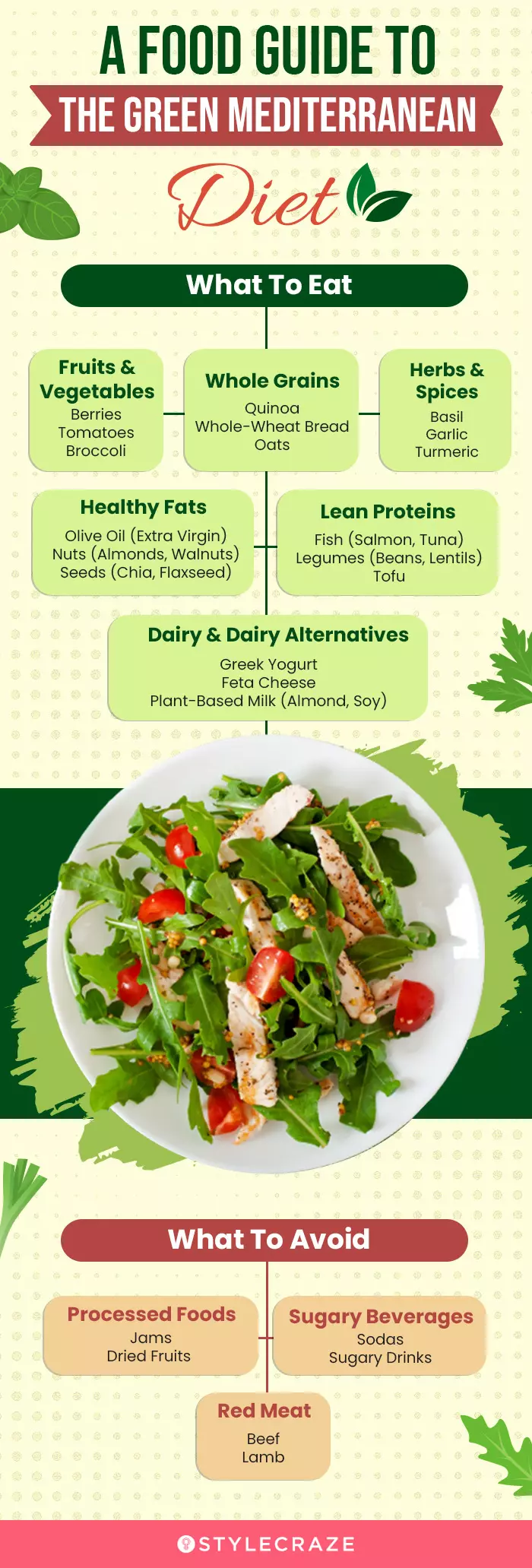
Frequently Asked Questions
Is the green Mediterranean diet sustainable?
Yes. The green Mediterranean diet is sustainable as it includes a wide range of food options. It emphasizes plant-based foods and local, seasonal ingredients, along with dairy, eggs, and poultry consumption in moderation.
What role do leafy greens and vegetables play in the green Mediterranean diet?
Leafy greens and vegetables are central to the green Mediterranean diet, as they provide vitamins, minerals, and fiber, and are crucial for maintaining healthy digestion and immunity.
Can children and teenagers follow the green Mediterranean diet, or is it primarily for adults?
Yes, the green Mediterranean diet is safe for children and teenagers to follow since it focuses more on the consumption of vegetables and fruits, which is essential for kids in their growing years. However, always consult a pediatrician before changing your kid’s diet.
How can someone monitor their progress and health improvements on the green Mediterranean diet?
You can check your progress after every 3 or 6 months of following the green Mediterranean diet. Check your blood cholesterol levels, weight, and blood glucose levels, and keep a note of them. You can also keep track of what you are eating in a day and stick to your health goals. However, be sure to consult a doctor for further guidance.
How does the green Mediterranean diet address the environmental sustainability of food choices?
The green Mediterranean diet includes a high consumption of vegetables and fruits and a moderate consumption of eggs, poultry, and dairy, which makes it nutritionally adequate and sustainable. Its predecessor, the Mediterranean diet has been recognized as the best example of a sustainable dietary pattern because it is plant-based, causes lower greenhouse gas emissions and lower water emissions than Western diets (17).
Illustration: Green Mediterranean Diet: Benefits And How It Works
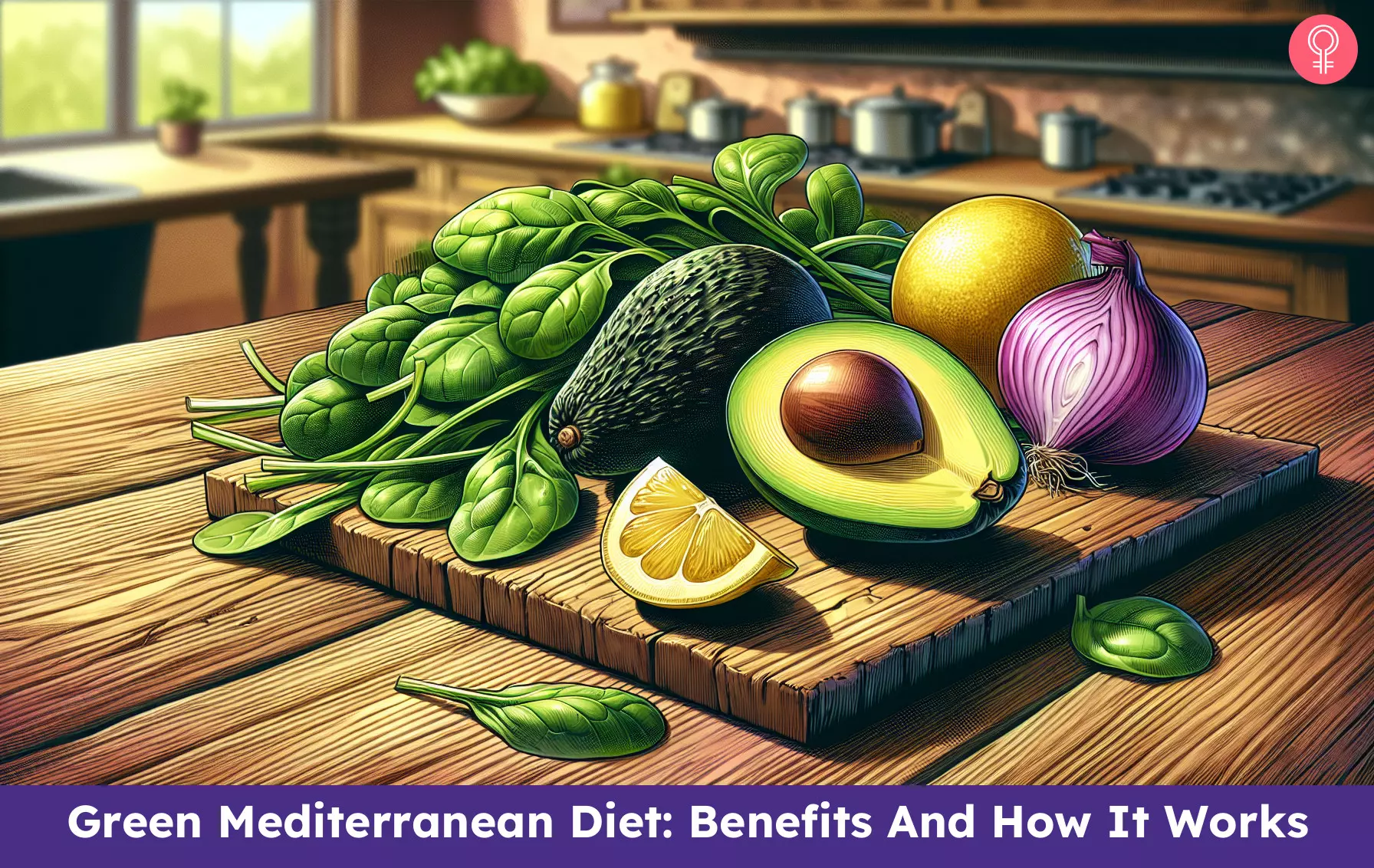
Image: Dall·E/StyleCraze Design Team
Transform your lifestyle by opting plant-based diet and healthy eating habits. Check out this insightful video to learn about the Green Mediterranean diet and its long-term benefits.
References
Articles on StyleCraze are backed by verified information from peer-reviewed and academic research papers, reputed organizations, research institutions, and medical associations to ensure accuracy and relevance. Read our editorial policy to learn more.
- Effect of green-Mediterranean diet on intrahepatic fat: the DIRECT PLUS randomized controlled trial
https://www.ncbi.nlm.nih.gov/pmc/articles/PMC8515100/ - Wolffia globosa–mankai plant-based protein contains bioactive vitamin B12 and is well absorbed in humans
https://www.ncbi.nlm.nih.gov/pmc/articles/PMC7600829/ - Flavonoids from duckweeds: potential applications in the human diet†
https://www.ncbi.nlm.nih.gov/pmc/articles/PMC9058668/ - The Mediterranean Diet, recognized by UNESCO as a cultural heritage of humanity
https://www.researchgate.net/publication/288123570_The_Mediterranean_Diet_recognized_by_UNESCO_as_a_cultural_heritage_of_humanity - Definition of the Mediterranean Diet: A Literature Review
https://www.ncbi.nlm.nih.gov/pmc/articles/PMC4663587/ - A polyphenol-rich green Mediterranean diet enhances epigenetic regulatory potential: the DIRECT PLUS randomized controlled trial
https://pubmed.ncbi.nlm.nih.gov/37236302/ - A Review of Plant-based Diets to Prevent and Treat Heart Failure
https://www.ncbi.nlm.nih.gov/pmc/articles/PMC5971679/ - Mediterranean diet and weight loss: meta-analysis of randomized controlled trials
https://pubmed.ncbi.nlm.nih.gov/20973675/ - Cancer and Mediterranean Diet: A Review
https://www.ncbi.nlm.nih.gov/pmc/articles/PMC6770822/ - The effects of the Green-Mediterranean diet on cardiometabolic health are linked to gut microbiome modifications: a randomized controlled trial
https://genomemedicine.biomedcentral.com/articles/10.1186/s13073-022-01015-z - The effect of a high-polyphenol Mediterranean diet (Green-MED) combined with physical activity on age-related brain atrophy: the Dietary Intervention Randomized Controlled Trial Polyphenols Unprocessed Study (DIRECT PLUS)
https://www.sciencedirect.com/science/article/pii/S0002916522002507?via%3Dihub - Systematic review and meta-analysis of the associations of vegan and vegetarian diets with inflammatory biomarkers
https://www.ncbi.nlm.nih.gov/pmc/articles/PMC7730154/ - A plant-based diet for the prevention and treatment of type 2 diabetes
https://www.ncbi.nlm.nih.gov/pmc/articles/PMC5466941/ - Cardiovascular Effects and Benefits of Exercise
https://www.ncbi.nlm.nih.gov/pmc/articles/PMC6172294/ - Health benefits of physical activity: the evidence
https://www.ncbi.nlm.nih.gov/pmc/articles/PMC1402378/ - Probable antagonism of warfarin by green tea
https://pubmed.ncbi.nlm.nih.gov/10332534/ - Mediterranean Diet: From a Healthy Diet to a Sustainable Dietary Pattern
https://www.ncbi.nlm.nih.gov/pmc/articles/PMC4518218/
Read full bio of Amie Alexander
Read full bio of Sindhu Koganti
Read full bio of Arshiya Syeda
Read full bio of Payal Karnik









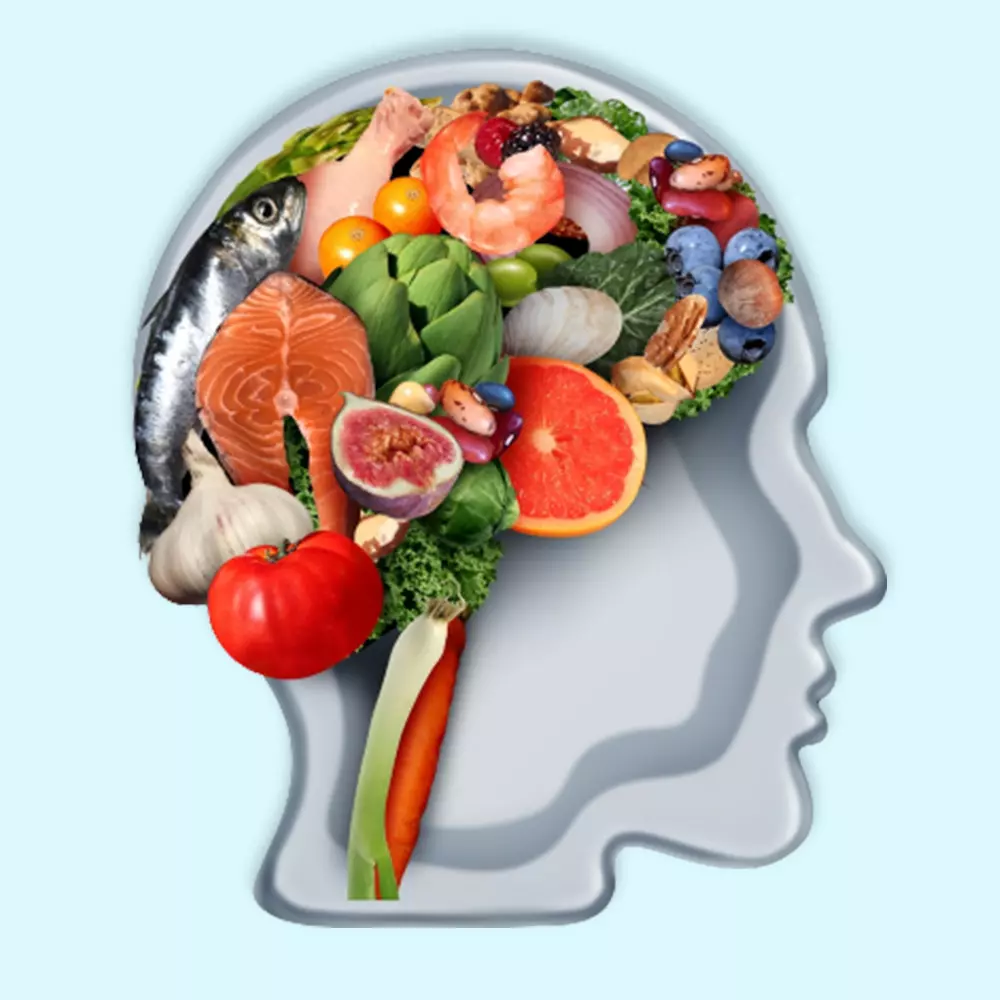


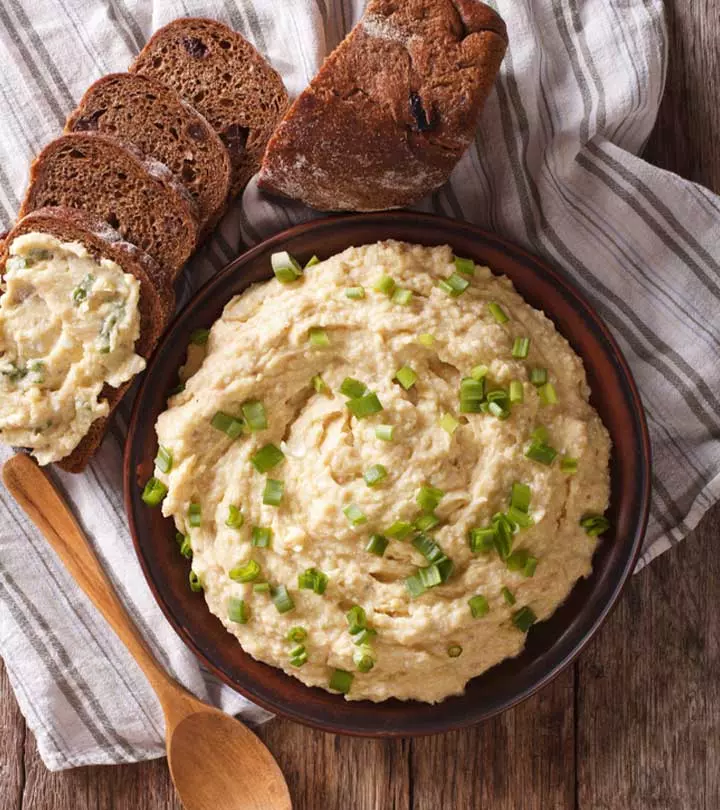

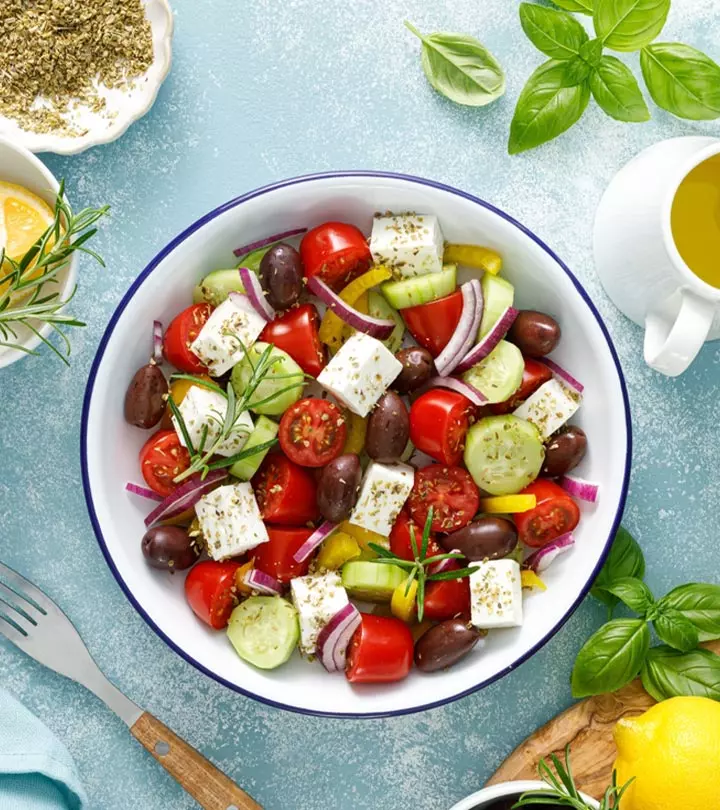









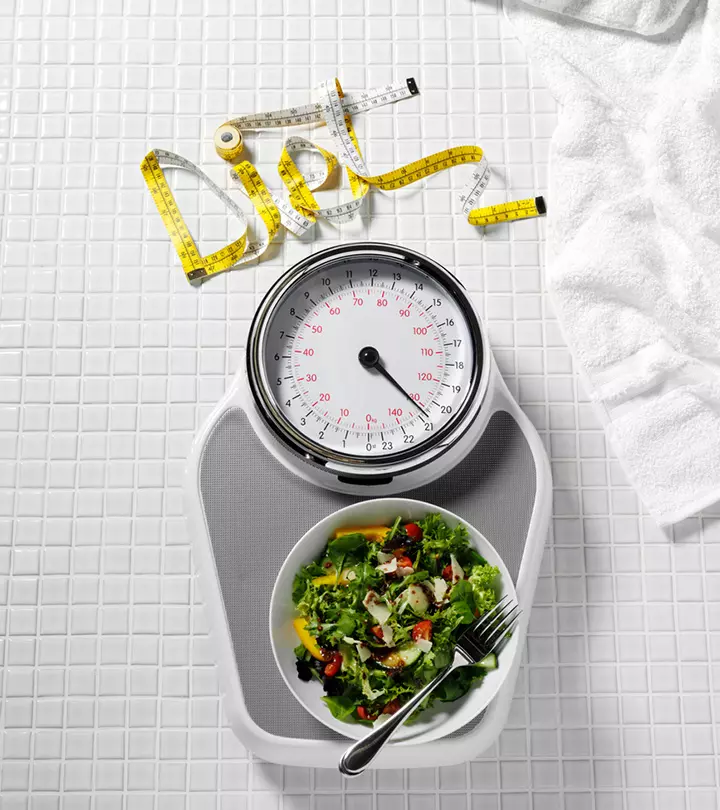

Community Experiences
Join the conversation and become a part of our empowering community! Share your stories, experiences, and insights to connect with other beauty, lifestyle, and health enthusiasts.